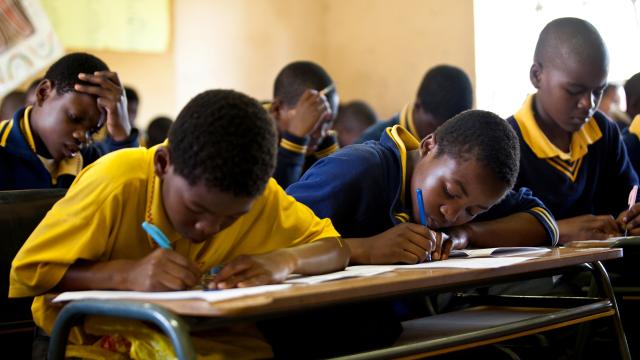The dismantling of USAID, and prospects of massive cuts to the US aid budget, are hugely consequential for global education.
The US Government’s importance to global education cannot be over-stated. The US provides over one quarter of global aid: 28% in 2023. It is by far the largest bilateral funder of basic education, consistently providing around $1 billion per year to basic education over the last decade. As the largest shareholder of the World Bank and by far the largest funder of UNICEF – at $1.4bn in 2023, more than double the next largest contributor – it provides essential financing to the large multilateral institutions that lead on global education; as well as those UN agencies that support other sectors critical for educational outcomes (e.g. WHO, WFP, UNAIDS, UNHCR).
In addition to its funding, the US Government’s technical capability – and that of US-funded partners – and convening power should not be under-valued. In its 2011 Education Strategy, USAID adopted a bold target to improve reading skills for 100 million children worldwide. Over the last decade and a half, it is USAID missions in country – more than any others in the international community – who have helped anchor a global revolution in reading and foundational learning. US funding and technical assistance has made a huge difference, setting children on a fundamentally different trajectory of learning and earning. It is an investment that has enriched communities and nations, and, in no doubt, been squarely in the US national interest, through the generation of good will, human capital, economic growth, stability and international trade.
With the recent Stop Work Order directive, that funding, capability, and infrastructure is now being dismantled. It compounds an existing dismantling – less dramatic (death by a thousand cuts?) but no less consequential – of European aid to global education over recent years, as bilateral European donors and the European Union reduce aid budgets and divert growing shares of what remains away from development objectives to domestic and geo-strategic interests.
The UK, France and Germany have slashed aid budgets, including to global education, and smaller donors such as Switzerland and Belgium are now following suit. Education funding has never been more necessary and more precarious, and now we are losing our strongest international allies.
GSF’s community of 162 organisations work across 64 low- and middle-income countries, collectively running or supporting schools that educate over 120 million children. They work every day with children, teachers, parents, communities and governments. Cuts to USAID funding and country presence now jeopardise our members’ operations and the prospects of a decent education for children in the low-income communities they serve. As for other USAID grantees, many of our members have had to stop their programs immediately – one member has had several awards immediately halted – and many are losing a sizeable share of their funding and ability to operate.
Pamela Wabukaka, a teacher in a low-income slum community in Nairobi, previously received teacher training through GSF member Jackfruit Finance, funded by the USAID Catalyze Edufinance initiative. She said: “Putting this program on hold means limited access to more effective learner engagement content. It is important that the CATALYZE Program considers continuing this training program as it had begun to empower us and improve our confidence in class.” We urge the US Government to rescind the Stop Work Order and sustain US funding for international development, including for global education.
About Global Schools Forum
Global Schools Forum is a collaborative community, innovation accelerator, and partnership builder for non-state organisations working to improve education at scale for underserved children in low- and middle-income countries. Our community spans 162 organisations globally, collectively running or supporting more than 1.35 million schools and impacting over 122 million children.

